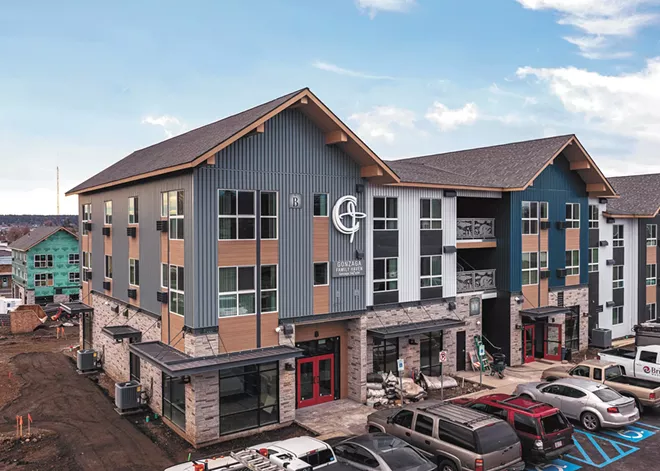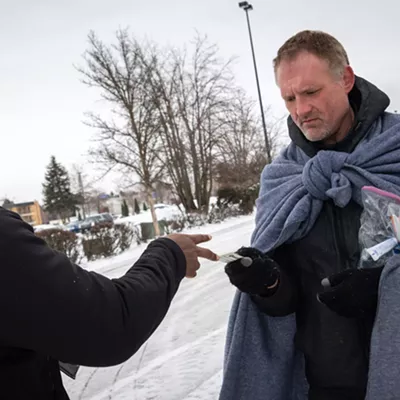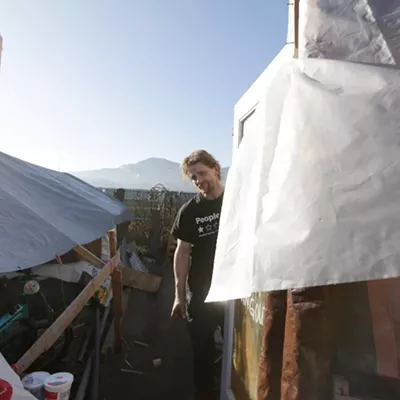I recently read the article by Eliza Billingham about a group of citizens walking at 5 am every morning to pressure our city leaders to combine forces into a regional authority to address homelessness. ("Unexpected Collab," March 6.) The group is trying to solve the wrong problem. Everyone in the article portrays a regional board controlling all of the funds as the end solution. That is nonsense, as we know that housing is the solution to homelessness. To focus on the structure is a distraction from our real issue.
In 2022, I raised money and hired Corner Booth Media to produce a series titled "Housing and Help." We asked Gavin Cooley to be the host and went to work. The five episodes touch on Camp Hope and then dive into the success seen in Houston. Gavin, myself and the production team spent significant time interviewing and touring Houston. What we learned was very clear. Houston needed a regional homeless authority to force the community to spend the consolidated funds on building more housing with services.
If you watch the series at housingandhelp.org, you absolutely see that the "magic sauce" is getting someone in housing with help. (The Inlander covered this in "Houston, We Have a Problem," Sept. 22, 2022.)
Houston used its regional authority to get everyone to align with this policy. The regional authority didn't magically solve the issues. Go watch. Poor Spokane, we get down the road to solving problems but then get lost. You see this clearly in Gavin's comments in the article. He is advocating for law enforcement to intervene and determine if people go to jail or treatment.
You know what they didn't do in Houston? Throw people in jail.
You know what they didn't do in Houston? Forced treatment.
They put people in housing and offered services in their housing. Houston decreased their homeless population by 60% by building thousands of units and funding services.

For the last 12 years, Houston has not broken up encampments unless they have housing available for the people there. That is a hard and fast rule. So how did they remove encampments and make their city safer? They built housing. They then worked with folks in encampments to get into the housing. The group walking at 5 am thinks if we create a magical regional authority somehow we can come to a different conclusion from the facts and data where the answer is only housing. Our lesson from Houston was housing with services, not to create a new structure.
The fact that the 5 am walking group advocates for arrest, jail or mandatory treatment shows they are actually ignoring the lessons from Houston. But aren't we failing now and shouldn't we try this solution, you ask? Houston used their regional authority to get every funder, local businesses and foundations to focus on building more housing. That should be our focus.
"Poor Spokane, we get down the road to solving problems but then get lost."
The regional authority conversation in our community is not about that though. Cooley and others ignored the community input they received and came up with a framework that gives small cities with no skin in the game the same number of board seats as the city of Spokane, which would be contributing 70% of the money. Bad input leads to bad outputs. Let's stop beating our head against the wall and focus on building more housing of all types.
Houston's regional authority was needed when no one was playing nice with each other. In Spokane that ignores the fact that the city and county handle the millions of dollars separately but are coordinating together. More importantly, the city and the county are operating more efficiently and better than they have in the last 20 years. Both the city and the county have released their funds earlier in 2025 than ever before — an important comparison. The Woodward administration didn't release housing funds at all for two years and left money from the feds on the table. But most importantly, the city and the county are being innovative and are shifting to new smaller models of shelters.
To say we need a regional authority when things are operating better than ever before is ignoring the real problem: We need more housing of all types, including more low-income housing, which requires not more coordination but more resources. We need to drive rents down for those on the street.
We need to stop pursuing performative solutions and look to what we can do to increase production. If people want to walk every day at 5 am, they should be demanding that every regional municipal and county government ensure that there are local dollars invested in low-income housing, ensure that lot sizes encourage production of middle housing and make land available so that more production occurs. Resources are needed, permitting can speed up, but don't get lost in a structural argument when the real solution is more housing, both market rate and low income, at all levels. ♦
Ben Stuckart is the executive director of the Spokane Low Income Housing Consortium. He served two terms as Spokane City Council president.



















